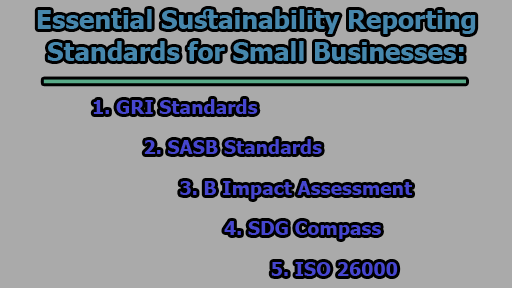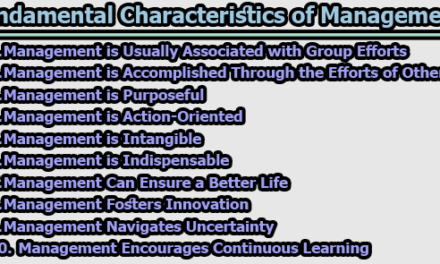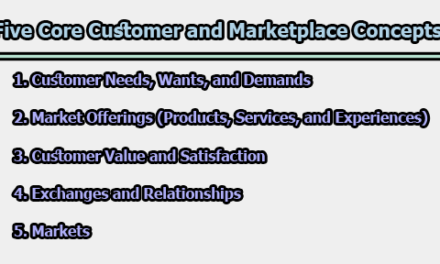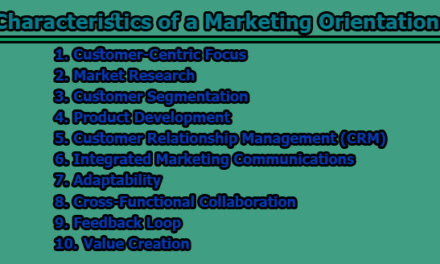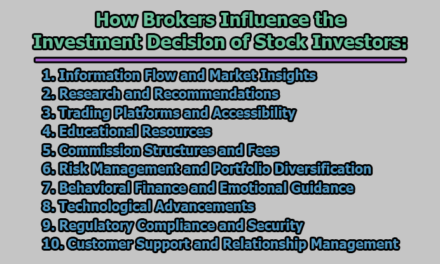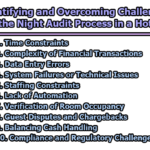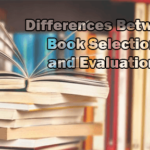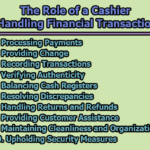Essential Sustainability Reporting Standards for Small Businesses:
In an age where environmental, social, and governance (ESG) performance is increasingly important, small businesses are recognizing the value of sustainability reporting. Such reporting not only enables them to convey their values and impacts to stakeholders but also improves their reputation, efficiency, and competitiveness. Yet, amidst a sea of standards and frameworks, choosing the right one can be a daunting task. This article will introduce essential sustainability reporting standards for small businesses and explain how they can benefit from them.
1. GRI Standards: The Global Reporting Initiative (GRI) Standards stand as a beacon for small businesses looking to embark on the journey of sustainability reporting. These standards have gained recognition on a global scale and are widely acknowledged as one of the most comprehensive frameworks for reporting on environmental, social, and governance (ESG) performance. Small businesses, in particular, can reap immense benefits from adopting the GRI Standards.
The GRI Standards cover an extensive range of critical topics, making them highly versatile. Topics include climate change, human rights, diversity, ethics, and anti-corruption. This inclusivity enables small businesses to choose the specific areas that align with their values and objectives. In essence, the GRI Standards are not a one-size-fits-all solution; they are flexible and modular, allowing businesses to tailor their sustainability reports to what is most relevant and material to their operations.
One of the key advantages of the GRI Standards is the guidance they provide on how to engage with stakeholders. Small businesses can struggle with stakeholder communication, and the GRI Standards offer a structured approach to addressing this challenge. Effective engagement is essential for building trust, understanding the needs of stakeholders, and maintaining open lines of communication.
Defining reporting boundaries is another significant hurdle for small businesses when creating sustainability reports. GRI Standards help businesses set these boundaries, ensuring that the scope of their reporting is clear and relevant. This, in turn, makes the reporting process more efficient and effective.
Moreover, the GRI Standards place a strong emphasis on the quality and credibility of the report. For small businesses, this means that their sustainability reports are not merely a compliance exercise but a tool for showcasing their dedication to ESG performance. The rigor of the GRI Standards helps build credibility, fostering trust among stakeholders and demonstrating a commitment to best practices in sustainability reporting.
Small businesses can significantly benefit from adopting the GRI Standards in several ways:
- Enhancing Transparency: Transparency is crucial in the modern business landscape. Small businesses that are transparent about their ESG performance are more likely to gain the trust of their stakeholders, including customers, investors, and the local community.
- Gaining Stakeholders’ Trust: By following globally recognized standards like GRI, small businesses can build trust with stakeholders, including customers, suppliers, and investors. This trust can lead to stronger relationships and opportunities for growth.
- Aligning with Global Best Practices: The GRI Standards are considered a gold standard in sustainability reporting. Adhering to these standards aligns small businesses with global best practices and demonstrates a commitment to responsible business practices.
The GRI Standards offer small businesses a robust framework for sustainability reporting. By allowing flexibility, providing guidance on stakeholder engagement, and emphasizing quality, these standards enable small businesses to enhance their transparency, gain stakeholders’ trust, and align their ESG performance with global best practices. In an era where sustainability is a key driver of success, adopting the GRI Standards can position small businesses for long-term growth and positive societal impact.
2. SASB Standards: The Sustainability Accounting Standards Board (SASB) Standards offer small businesses a specialized and industry-specific approach to sustainability reporting, tailored to meet the needs of investors and financial stakeholders. These standards are designed to help businesses disclose their Environmental, Social, and Governance (ESG) performance in a manner that directly relates to their financial performance and risk profile.
Here’s a closer look at the key features and benefits of the SASB Standards for small businesses:
- Industry-Specific Focus: One of the standout features of SASB Standards is their industry-specific approach. These standards recognize that different sectors face unique ESG challenges and opportunities. By providing specific guidance for each industry, small businesses can better understand the ESG issues most relevant to their operations. This targeted approach ensures that the reporting is not only comprehensive but also highly focused, making it more meaningful for investors.
- Financial Relevance: The SASB Standards are rooted in rigorous research and stakeholder consultation. This means that the ESG factors identified in the standards are directly tied to a business’s financial performance and risk profile. For small businesses, this is particularly valuable because it enables them to articulate the materiality of their ESG efforts to potential investors and lenders.
- Alignment with TCFD Recommendations: The SASB Standards align with the recommendations of the Task Force on Climate-related Financial Disclosures (TCFD). This alignment is especially important in the current climate, where climate-related risks and opportunities are becoming increasingly significant for businesses of all sizes. By adhering to both SASB and TCFD standards, small businesses can effectively address climate-related issues in their reporting, enhancing their resilience and sustainability.
- Enhancing Investor Relations: Small businesses often rely on access to capital for growth and sustainability. By using SASB Standards, they can better communicate their ESG performance to potential investors, lenders, and financial stakeholders. This enhances transparency and showcases a commitment to long-term sustainability, which can be a critical factor for attracting investment.
- Benchmarking Against Peers: SASB Standards offer a consistent and concise format for reporting, making it easy for small businesses to compare their ESG performance with industry peers. This benchmarking can provide valuable insights, identify areas for improvement, and allow businesses to position themselves competitively within their sector.
The SASB Standards are a valuable resource for small businesses aiming to communicate their ESG performance to investors and financial stakeholders. By providing industry-specific guidance and emphasizing financial relevance, these standards can help small businesses enhance investor relations, access capital, and maintain a competitive edge. Additionally, their alignment with TCFD recommendations ensures that businesses are well-equipped to address climate-related risks and opportunities, a crucial aspect of modern sustainability reporting. Leveraging SASB Standards can be a strategic step toward a more sustainable and financially sound future for small businesses.
3. B Impact Assessment: The B Impact Assessment is a versatile and impactful tool designed to help businesses, including small enterprises, measure and enhance their social and environmental impact. With over 100,000 businesses worldwide, including those seeking B Corp certification, utilizing it, the B Impact Assessment has proven itself as a valuable resource for companies looking to integrate purpose-driven initiatives into their operations.
Here’s how the B Impact Assessment can benefit small businesses:
- Comprehensive Assessment: The B Impact Assessment evaluates businesses across five critical areas: governance, workers, community, environment, and customers. This comprehensive approach ensures that businesses are assessed on a broad spectrum of ESG factors, allowing them to get a holistic view of their impact.
- Measurable Impact: The assessment provides a numerical score that quantifies a company’s social and environmental performance. This score serves as a clear indicator of how well a business is doing in each of the assessed areas, allowing small businesses to track their progress over time.
- Detailed Feedback: Beyond just a score, the B Impact Assessment provides a detailed report that highlights specific strengths and weaknesses. This feedback is invaluable as it pinpoints areas where improvements are needed, offering actionable insights for making positive changes.
- Roadmap for Improvement: Small businesses can benefit greatly from the roadmap for improvement that the B Impact Assessment offers. This roadmap outlines practical steps that can be taken to enhance social and environmental performance. It acts as a guide for businesses looking to make a meaningful impact in these areas.
- Market Differentiation: As consumer and investor preferences shift toward socially and environmentally responsible businesses, completing the B Impact Assessment and working to improve scores can help small businesses stand out in the market. It signals to customers, investors, and partners that a business is committed to a broader purpose beyond profits.
- Path to B Corp Certification: For small businesses aiming for B Corp certification, the B Impact Assessment is often a necessary step in the process. Achieving B Corp status is a recognized way to showcase a commitment to ethical and sustainable business practices. Small businesses can use the assessment as a foundational tool in their journey toward certification.
The B Impact Assessment is a powerful tool for small businesses seeking to measure, improve, and showcase their social and environmental impact. It provides a comprehensive assessment, a quantifiable score, detailed feedback, and a roadmap for improvement. Small businesses can harness the B Impact Assessment to differentiate themselves in the market and demonstrate their dedication to a broader purpose. As the importance of ESG considerations continues to grow, embracing the B Impact Assessment can help small businesses not only survive but thrive in an increasingly conscious and responsible business landscape.
4. SDG Compass: The Sustainable Development Goals (SDGs) Compass serves as an invaluable guide for small businesses looking to align their operations with the United Nations Sustainable Development Goals. These global goals address some of the most pressing challenges facing humanity and the planet, including poverty, inequality, climate change, and peace. For small businesses, the SDG Compass offers a strategic tool that can help them contribute positively to these goals while improving their own sustainability.
Here’s how small businesses can benefit from using the SDG Compass:
- Alignment with Global Goals: The SDGs are universally recognized and supported by governments, organizations, and communities worldwide. By aligning their strategies and actions with the SDGs, small businesses can demonstrate their commitment to global sustainability efforts. This alignment can enhance their reputation and attract like-minded customers, investors, and partners.
- Understanding Contribution: The SDG Compass helps businesses understand how their activities and products contribute to specific SDGs. It allows small businesses to identify the areas where they can have the most meaningful impact and focus their efforts accordingly.
- Identifying Opportunities and Risks: The SDGs also represent opportunities for innovation and growth. By using the SDG Compass, small businesses can identify new markets, product offerings, or operational improvements that align with the SDGs. Additionally, the tool can help identify potential risks associated with failing to address these global challenges.
- Setting Goals: Small businesses can use the SDG Compass to set specific and measurable goals related to the SDGs. These goals can serve as a roadmap for their sustainability efforts and provide a clear direction for improvement.
- Measuring Progress: The SDG Compass encourages small businesses to measure their progress towards their SDG-related goals. This measurement allows for transparency and accountability, demonstrating to stakeholders that the business is committed to making a real difference.
- Communicating Impact: Sharing progress and impact with stakeholders is crucial. The SDG Compass can help small businesses effectively communicate their contributions to the SDGs, showcasing their commitment to sustainability and responsibility.
- Fostering Partnerships: By aligning with the SDGs, small businesses can foster partnerships with organizations and initiatives that share similar goals. Collaborations with like-minded entities can lead to shared resources, knowledge exchange, and mutually beneficial efforts to address global challenges.
- Access to Resources and Examples: The SDG Compass provides small businesses with resources and examples from other organizations that have successfully adopted the SDGs. This access to best practices and real-world cases can inspire innovative approaches and guide businesses in their sustainability journey.
The SDG Compass is a powerful tool that allows small businesses to navigate the complex landscape of sustainable development. By aligning with the UN Sustainable Development Goals, small businesses can demonstrate their commitment to sustainability, identify opportunities and risks, set clear goals, measure progress, and communicate their impact effectively. Furthermore, it enables them to build partnerships with organizations pursuing similar objectives and access valuable resources and examples to guide their efforts. In an era where responsible business practices are gaining increasing importance, embracing the SDGs through the SDG Compass can be a strategic move for small businesses looking to thrive in a conscious and sustainable business environment.
5. ISO 26000: The ISO 26000 is an international standard that provides essential guidance for businesses, including small enterprises, on how to implement social responsibility within their operations. This comprehensive standard covers seven core subjects: organizational governance, human rights, labor practices, environment, fair operating practices, consumer issues, and community involvement and development. For small businesses, ISO 26000 offers a structured approach to addressing social responsibility issues and integrating them into their strategies, policies, and practices.
Here’s how small businesses can benefit from using ISO 26000:
- Guidance for Social Responsibility: ISO 26000 serves as a comprehensive guide for businesses seeking to understand and address various social responsibility issues. This includes topics such as governance, human rights, and environmental sustainability. Small businesses often lack the resources to develop complex social responsibility frameworks from scratch, making ISO 26000 a valuable resource.
- Identifying Stakeholders and Impacts: One of the key benefits of ISO 26000 is its emphasis on identifying stakeholders and understanding the impact of a business on these stakeholders. For small businesses, this can be particularly valuable in building strong relationships with customers, employees, and local communities. By understanding the needs and expectations of stakeholders, small businesses can tailor their practices accordingly.
- Integration into Strategy and Policies: ISO 26000 guides businesses on how to integrate social responsibility into their core strategies and policies. Small businesses can use this guidance to ensure that social responsibility is not just an add-on, but an integral part of their operations. This fosters a culture of responsibility that permeates all aspects of the business.
- Credibility and Accountability: By adhering to ISO 26000, small businesses can enhance their credibility. This standard signals to stakeholders that the business takes its social responsibility seriously and follows internationally recognized best practices. This, in turn, can lead to greater trust from customers, investors, and the community.
- Transparency: ISO 26000 encourages businesses to be transparent about their social responsibility efforts. Small businesses can use this transparency to communicate their values and commitments to stakeholders, building trust and goodwill.
- Positive Impact on Communities and the Environment: Small businesses can use ISO 26000 to contribute positively to their communities and the environment. By addressing core subjects like community involvement, environmental sustainability, and fair operating practices, small businesses can demonstrate their commitment to making a difference.
ISO 26000 is a valuable resource for small businesses seeking to integrate social responsibility into their operations. By providing guidance on critical subjects, identifying stakeholders, and offering a structured approach to integration, ISO 26000 enables small businesses to build trust with stakeholders, enhance their social responsibility, and contribute positively to their communities and the environment. In a world where responsible business practices are increasingly valued, ISO 26000 can help small businesses establish themselves as ethical and conscientious enterprises, ultimately benefiting their reputation and bottom line.
In conclusion, sustainability reporting is no longer a luxury but a necessity for small businesses aiming to thrive in an increasingly conscious market. Choosing the right reporting standard is crucial to ensure that your efforts align with global best practices, attract investors, and build a sustainable future. Whether it’s the comprehensive GRI Standards, industry-specific SASB Standards, the practical B Impact Assessment, the strategic SDG Compass, or the holistic ISO 26000, there’s a sustainability reporting framework that can help small businesses navigate the path toward a more sustainable and responsible future. Small businesses should carefully consider their unique needs and goals to choose the standard that best fits their operations, enabling them to communicate their values, enhance their reputation, and contribute to a better world.

Former Student at Rajshahi University

